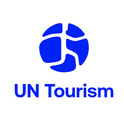Cultural Tourism Management The Focus as UNWTO and Comunidad De Madrid Host Experts Meeting
UNWTO and the Comunidad de Madrid have reunited 18 experts from all around the world to share ideas, debate and explore the challenges and trends of cultural tourism.





The meeting focused on the strategic management of cultural resources for the destinations, including the challenge of managing tourist flows through different routes or combined products. Experts also discussed on how to promote lesser-known destinations which are outside of the major tourist circuits as a way to avoid the saturation of main touristic attractions. In this sense, for example, the experts examined crucial role of tourism promotion, marketing strategies, and public-private partnerships for the development of cultural tourism.
The debates focused on the identification of aspects that are jeopardizing the sustainability of cultural tourism. This brings up the eternal dilemma between conservation and development, and to what extent it is legitimate to exploit the cultural values of a territory for the socio-economic growth.
Ion Vilcu, Director of the UNWTO Affiliate Members Department, highlighted the importance of cultural values for the promotion of destinations. He added UNWTO is providing solutions to the conflicts that tourist saturation is generating in major destinations and cultural sites, as well as to promote the development of tourism in lesser-known sites, stimulating their conservation and fostering the positive effects that tourism generates in terms of socioeconomic development
.
Daniel Martinez, Deputy Regional Minister of Culture and Tourism of the Region of Madrid, highlighted the opportunity for the Region of Madrid to host such an important international meeting. We are very pleased to facilitate reflection on the region's essential tourism model. We are experiencing a large increase in high-value tourists who visit us attracted by our cultural and heritage offer, which is why it is essential to understand the trends of cultural tourism and to promote its sustainable growth, generating employment and attracting investment.
During the last 3 days these international experts have been working to draw up conclusions and set out recommendations for cultural and tourism destination management that will be featured in a report to be presented next January at the International Tourism Trade Fair (FITUR). On this occasion, experts also had the opportunity to visit the Picasso/Chanel Exhibition at the National Museum Thyssen-Bornemisza, along with the Royal Site and Town of Aranjuez.
RELATED LINKS
- UNWTO and Comunidad de Madrid Hold First Experts Meeting on Cultural Tourism
- 1st Experts Meeting on Cultural Tourism
- FITUR 2023
- UNWTO Affiliate Members
- About Comunidad de Madrid
About UN Tourism
The World Tourism Organization (UN Tourism) is the United Nations agency responsible for the promotion of responsible, sustainable and universally accessible tourism.
As the leading international organization in the field of tourism, UN Tourism promotes tourism as a driver of economic growth, inclusive development and environmental sustainability and offers leadership and support to the sector in advancing knowledge and tourism policies worldwide.
Our Priorities
Mainstreaming tourism in the global agenda: Advocating the value of tourism as a driver of socio-economic growth and development, its inclusion as a priority in national and international policies and the need to create a level playing field for the sector to develop and prosper.
Promoting sustainable tourism development: Supporting sustainable tourism policies and practices: policies which make optimal use of environmental resources, respect the socio-cultural authenticity of host communities and provide socio-economic benefits for all.
Fostering knowledge, education and capacity building: Supporting countries to assess and address their needs in education and training, as well as providing networks for knowledge creation and exchange.
Improving tourism competitiveness: Improving UN Tourism Members' competitiveness through knowledge creation and exchange, human resources development and the promotion of excellence in areas such as policy planning, statistics and market trends, sustainable tourism development, marketing and promotion, product development and risk and crisis management.
Advancing tourism's contribution to poverty reduction and development: Maximizing the contribution of tourism to poverty reduction and achieving the SDGs by making tourism work as a tool for development and promoting the inclusion of tourism in the development agenda.
Building partnerships: Engaging with the private sector, regional and local tourism organizations, academia and research institutions, civil society and the UN system to build a more sustainable, responsible and competitive tourism sector.
Our Structure
Members: An intergovernmental organization, UN Tourism has 160 Member States, 6 Associate Members, 2 Observers and over 500 Affiliate Members.
Organs: The General Assembly is the supreme organ of the Organization. The Executive Council take all measures, in consultation with the Secretary-General, for the implementation of the decisions and recommendations of the General Assembly and reports to the Assembly.
Secretariat: UN Tourism headquarters are based in Madrid, Spain. The Secretariat is led by the Secretary-General and organized into departments covering issues such as sustainability, education, tourism trends and marketing, sustainable development, statistics and the Tourism Satellite Account (TSA), destination management, ethics and risk and crisis management. The Technical Cooperation and Silk Road Department carries out development projects in over 100 countries worldwide, while the Regional Departments for Africa, the Americas, Asia and the Pacific, Europe and the Middle East serve as the link between UN Tourism and its 160 Member States. The Affiliate Members Department represents UN Tourism's 500 plus Affiliate members.
UNWTO Communications Department
+34 91 567 8100
UN Tourism
